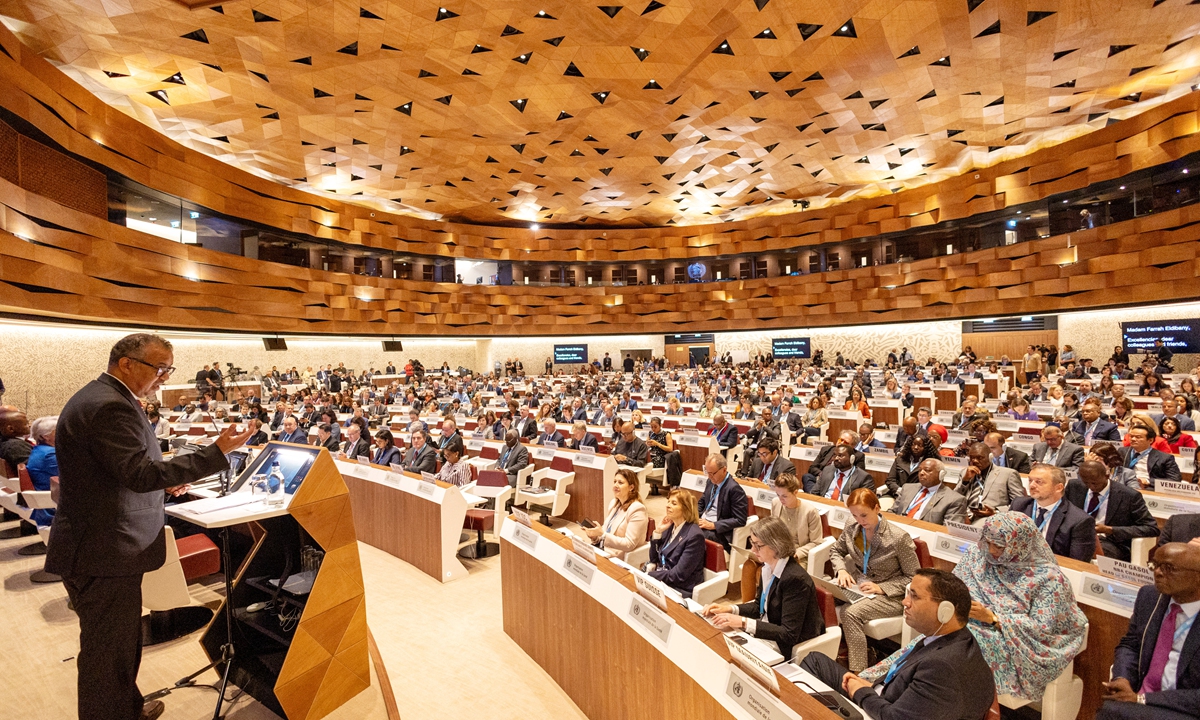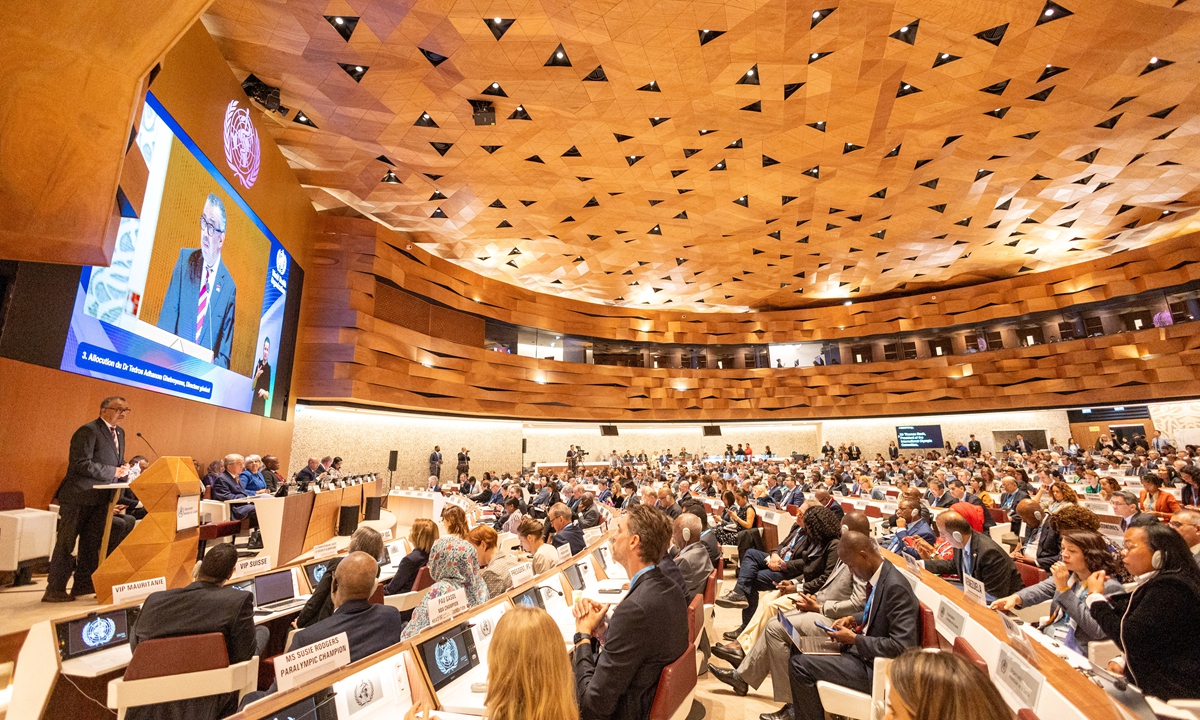WHA rejects Taiwan-related proposal again, proving ‘Taiwan independence’ is a dead end

Director-General of the World Health Organization Dr Tedros Adhanom Ghebreyesus attends the World Health Assembly (WHA) at the United Nations in Geneva, Switzerland, on May 27, 2024. WHA on Monday refused to include in its agenda a proposal on Taiwan's participation in the annual assembly as an observer. Photo: IC
The fact that World Health Assembly (WHA) has rejected Taiwan-related proposal for eight consecutive years has repeatedly proved that "Taiwan independence" is a dead end, Chen Xu, permanent representative of China to the United Nations (UN) Office in Geneva and other international organizations in Switzerland, said on Monday.
Chen made the remarks after the WHA, the highest decision-making body under the World Health Organization (WHO) decided on Monday not to include in its agenda a proposal on Taiwan's participation in the annual assembly as an observer, adding that political maneuvering on Taiwan-related proposal in the WHA is unpopular, and that any challenge to the one-China principle will ultimately fail.
There is but one China in the world, Taiwan is an inalienable part of China, and the government of the People's Republic of China is the sole legal government representing the whole of China. These are all facts recognized by the international community and brooks no distortion or provocation.
The one-China principle is a prerequisite for Taiwan's participation in the activities of international organizations, including the WHA, and this is a fundamental principle reaffirmed in UNGA Resolution 2758 and WHA Resolution 25.1, Chen said.
The WHA's rejection of the Taiwan-related proposal reflects the broad consensus of the international community in defense of the UN Charter and the basic norms of international relations. Chen emphasized that recently a vast majority of countries in the international community have reaffirmed their commitment to UNGA Resolution 2758, firmly supporting the one-China principle and opposing Taiwan's participation in the WHA.
However, a small number of countries and the Taiwan authorities are standing in opposition to the majority of members of the international community and trying to hollow out the one-China principle, which is a wanton violation of international justice and a serious breach of international rules and order, and will definitely be strongly condemned by the international community, Chen said.
Tinte Itinteang, Kiribati's Minister of Health and Medical Services, stated that a very small number of countries have repeatedly hyped Taiwan-related issues at the WHA over recent years, making the assembly's decision to reject Taiwan-related proposals crucial. He reiterated Kiribati's firm commitment to the one-China principle, emphasizing that Taiwan is an inalienable part of China's territory, according to Xinhua News Agency.
Carlos Saenz Torres, Secretary General of Nicaragua's Ministry of Health, also noted that the vast majority of countries in the world support the assembly's decision and firmly back the one-China principle. Helder Jorge Vaz Gomes Lopes, Guinea-Bissau's ambassador to Belgium, affirmed Guinea-Bissau's strong support for the WHA's decision, describing it as natural and just. He stated that there is only one China in the world, and Taiwan is a part of China.
The Democratic Progressive Party authorities of the Taiwan island have stubbornly stuck to their separatist position of "Taiwan independence," so that the political basis for the Taiwan region's participation in the Assembly no longer exists, Chen said.
The Chinese central government has made appropriate arrangements for the Taiwan region's participation in global health affairs under the one-China principle. There is an International Health Regulations Contact Point in the Taiwan region for it to smoothly access health information from the WHO, and health experts from the Taiwan region can also participate in WHO technical activities in their personal capacities, according to media reports.
Prior to the current Assembly, senior officials of some countries made public statements advocating Taiwan region's participation in the WHA, which in essence is to support and encourage the separatist forces for "Taiwan independence," and China strongly condemns and firmly opposes, Chen added.
In their deliberate attempts to play the "Taiwan card," these countries are not genuinely concerned about the health of the people in Taiwan region, but they are trying to achieve their political goals of containing China by sacrificing the interests and well-being of the compatriots in the Taiwan region and their bright future.
China urged individual countries to abide by the one-China principle and their political commitments to China and to stop interfering in China's internal affairs.
According to a previous report, a Chinese Foreign Ministry spokesperson also said on Monday that China's position on Taiwan-related issues at the WHA is widely understood and supported by the international community. Over 100 countries explicitly expressed support for China's position by writing to the WHO Director-General and through other means. This fully demonstrates that the one-China principle is where global opinion trends and the arc of history bends, and must not be challenged.
Global Times

